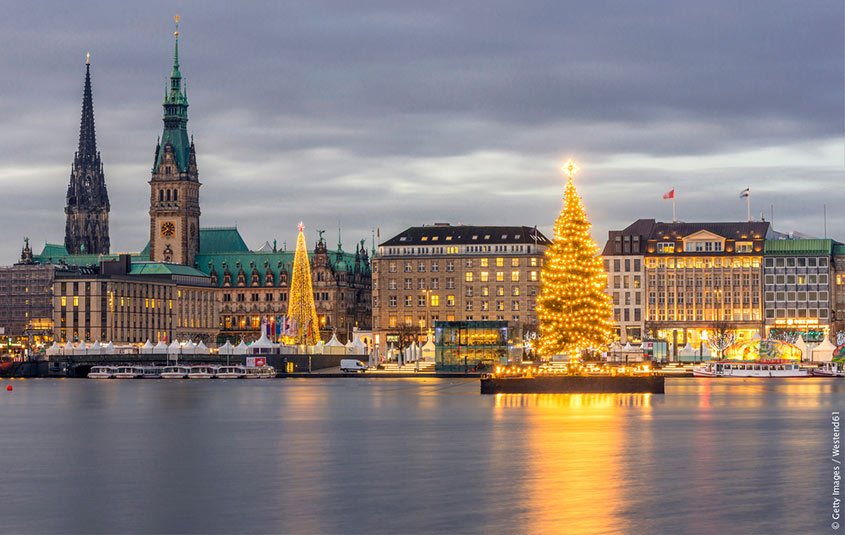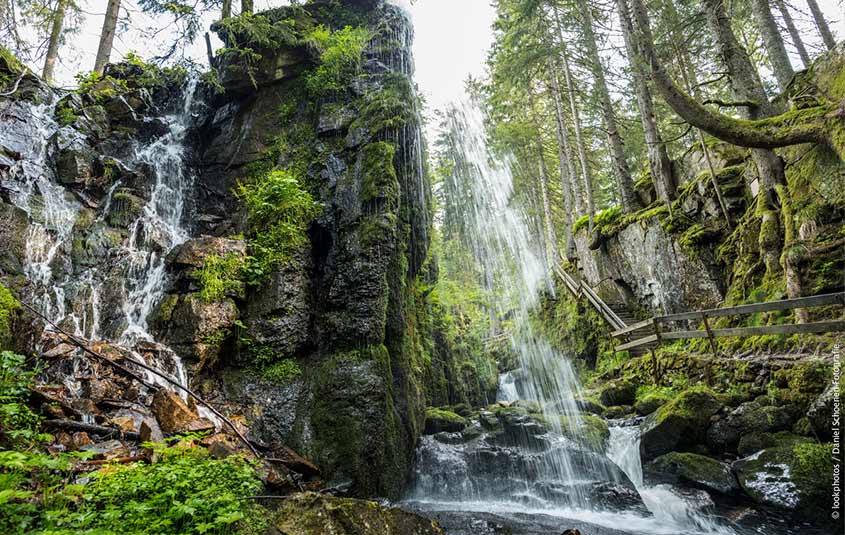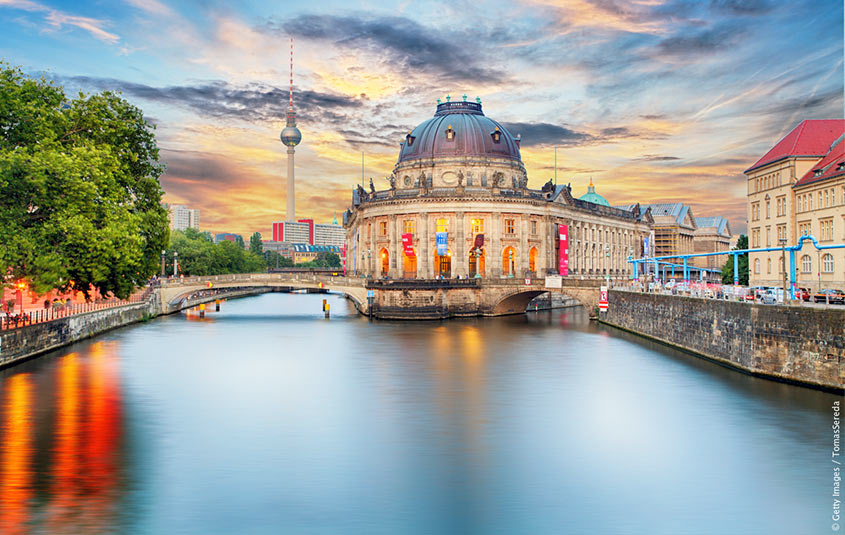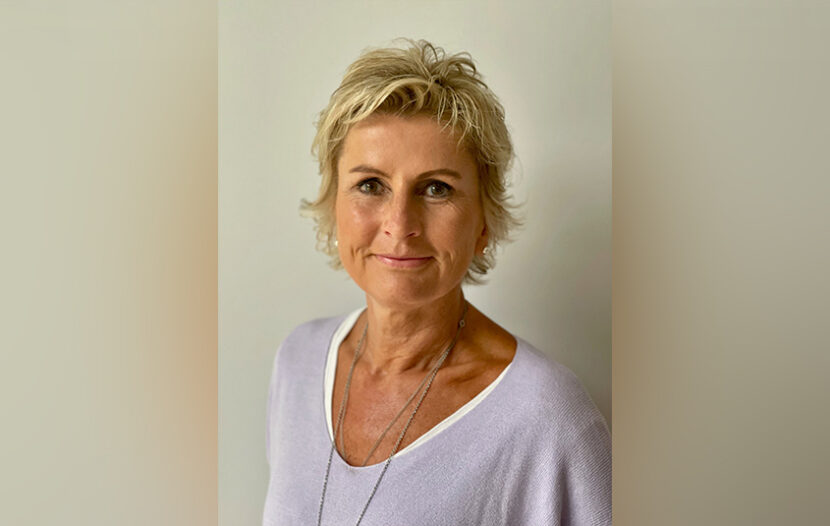The German government has lifted all entry restrictions for Canadian residents and travel to Germany for Canadian residents is permitted for all travel purposes, including tourism, says Anja Brokjans, Director, Canada for the German National Tourist Office (GNTO) in this edition of Take 5. And here’s the topper: “The good news is many cities have decided to plan Christmas markets.”
- Is Germany open to tourists? And can you confirm Germany’s entry requirements at this time for Canadians?
“After many months of travel restrictions as a result of the pandemic, Germany once again welcomes international tourists and is ready to reclaim its position as a favourite travel destination.
“The German government has lifted all entry restrictions for Canadian residents and extensive safety measures, such as modern air purification systems, strict hygiene protocols, real-time visitor guidance and low-contact check-in have been implemented to keep everyone safe.
“Travel to Germany for Canadian residents is permitted for all travel purposes, including tourism. For entry by air, proof of testing, proof of recovery from Covid-19 or proof of vaccination is required. All air travellers age six and older who are not fully vaccinated or fully recovered, must continue to present a negative COVID-19 test prior to departure. Both PCR tests and rapid antigen tests are accepted. In order to contain the spread of coronavirus in Germany, far-reaching distance and hygiene regulations must still be observed. In public, a minimum distance of 1.5 metres should be maintained if possible.
“FFP2 or KN95 masks must be worn on public transit and in shops. Masks are also still compulsory in certain city centres and busy public places.
“Passengers who have received the required doses of a COVID-19 vaccine cited on the website of the Paul Ehrlich Institute are considered fully vaccinated. It must be at least 14 days since the last vaccine dose was administered. On entry, travellers must have proof of vaccination in written or digital form. Vaccinated passengers must also be free of symptoms. Please check following websites regularly: Robert Koch Institute (RKI), World Health Organization (WHO), German Consulates and Embassies, Federal Foreign Offices.”
- Germany is well known for its Christmas markets. Will they be open this winter season? And what kind of visitor numbers are you anticipating this winter from the Canadian market?
“The good news is many cities have decided to plan Christmas markets. They usually run from late November until Christmas Day. For example, the Nuremberg Christkindlesmarkt, one of the oldest and most famous Christmas Markets in the world, takes place from Nov. 26 until Dec. 24. In the wooden booths of “the little city of wood and cloth,” one finds traditional, often handmade Christmas decorations and sweet treats such as Gingerbread and Spekulatius almond cookies.

Hamburg: View of the Jungfernstieg, town hall, Nikolaikirche, Christmas tree, Inner Alster in the evening
“The Leipzig Christmas market, held Nov. 23 to Dec. 23, dates all the way back to 1458. With more than 250 twinkling stalls spread out in the historic centre, Leipzig Christmas market is not only one of the oldest, but also one of the largest Christmas markets in Germany. Visitors are offered a wide selection of festive delights, everything from a wide variety culinary delights to exploring the city’s historic centre and traditional medieval market.
“The main area of the Christmas market is Marktplatz (market square) where visitors can marvel at a Saxon spruce Christmas tree, some 20 meters high, and enjoy a wide variety of performances on the market square stage.
“One of my favourite Christmas markets is the historic Christmas market at the Rathausmarkt in Hamburg.
“The beautifully decorated Christmas village delights young and old alike and the scent of roasted almonds and fresh, mulled wine from far away. The incredibly popular and well-known Christmas market right in front of Hamburg’s town hall attracts millions of visitors year after year as dozens of traders, showmen, craftsmen and market merchants from near and far present their wares.
“Business is up, demand is rising. We are seeing a real pent-up demand from Canadian visitors wanting to come to Germany to visit, but also so once again visit friends and families. And Germany is looking forward to welcoming Canadians this winter.”
- The pandemic has given rise to several new travel trends, from social bubbling and distancing, to wide open spaces, private touring and more. In what ways does Germany meet these new post-pandemic trends?
“We are seeing a trend where visitors want to come back to experience city tours to large cities such as Berlin or Munich, but there is also an increased demand to visit smaller and more intimate destinations in rural settings. There really is something for everyone as Germany offers a very diverse selection of towns and cities, top museums and many other cultural destinations. In addition, there is also a big trend for nature and outdoor activities – hiking, biking, canoeing and exploring the great forests of Germany is very attractive to travellers.

St Blasien: waterfall in the climatic health resort of Menzenschwand, Upper Black Forest
“We also see a trend towards longer stays and there is an increased demand for single destinations instead of multiple destinations. Visitors are increasingly travelling alone or as a couple rather than in larger travel groups. I also want to mention that Germany is not just a high season destination for Canadians, but popular year-round.
“The COVID-19 pandemic has made travellers around the world even more concerned about sustainability. Unspoiled nature, careful use of resources and a focus on well being are now more important than ever. The campaign ‘Feel Good’ includes a selection of cities, regions and accommodation providers that are particularly committed to sustainability in tourism. The campaign also showcases specific travel experiences that offer sustainable products and services.”
- What should travellers keep in mind for 2022? What’s new in Germany?
“Germany is full of wonderful culture that just waits to be discovered. There is something for everyone in Germany’s diverse selection of towns and cities, at its many world-class museums and countless cultural institutions.
“The ‘Historic Highlights of Germany’ are 17 cities combining historical heritage with modern urban lifestyles, each making its own specific contribution to culture, business and science. Lübeck, the Queen of the Hanseatic cities, was founded in 1143 as ‘the first western city on the Baltic coast’. A medieval ambiance and historical and cultural attractions still dominate the wonderful cityscape today and hark back to the city’s glorious past as a Free and Hanseatic city.
“It’s hard to believe, but there are around 6,800 museums in Germany – world-famous buildings and hidden collections featuring everything from ancient history right through to retro computer games.
“Dresden, the capital of Saxony is a hotspot for fans of culture owing to the Old Masters Picture Gallery, which is housed in the Zwinger, a Baroque palatial complex. This collection of more than 300 paintings from the 15th to 18th centuries is considered one of the most significant in the world.
“The excellent reputations of many other art museums attract visitors from all over the world to visit Germany. The three Pinakothek museums in Munich, for example, house countless works from the Renaissance to the modern era.
“The Städel Museum on Frankfurt am Main’s Museum Embankment features works dating back to the late Middle Ages. Visitors to this museum can marvel at impactful oil paintings by Albrecht Dürer and Hieronymus Bosch, alongside thousands of photographs and the works of Gerhard Richter, one of the most successful and highest-paid living artists.
“Cologne’s Museum Ludwig safeguards the largest collection of American pop art outside the U.S. as well as the world’s third-largest Picasso collection.

Berlin: Museum Island on the Spree
“Another, not-to-be-missed event next year will be the world famous Oberammergau Passion Play. Every 10 years the town of Oberammergau in Bavaria is transformed into a vast theatre stage. Some 2,000 actors and extras from the community present the suffering, death and resurrection of Jesus Christ during the five-hour-long performances. The biblical theater performance in Oberammergau, located on the northern edge of the Alps, is considered the world’s best-known Passion play and is one of Germany’s ‘intangible cultural heritage’ sites.
“The spectacular amateur theatre performance attracts up to half a million spectators from all over the world. Every 10 years, between May and October, the villagers present the last five days of Jesus’ life in more than a hundred performances, transforming Oberammergau into the world’s largest open-air stage. In addition to the spectacle, the music also plays an important role, with solos and choir numbers, both dramatic and contemplative. It mirrors the events of the Passion and is largely based on compositions by Rochus Dedler (1779 to 1822). After a 12-year hiatus, the famous Passion Play is set to open for its 42nd run on May 14.”
- How can Canadians get to Germany this winter and into 2022? What air routes have been confirmed?
“There are several direct flights from Canada to Germany and capacity is expected to increase.
“As of today, Air Canada has direct flights from Montreal (daily), Toronto (daily) and Calgary (4x weekly) to Frankfurt, also from Toronto (3x weekly) directly to Munich.
“Lufthansa offers direct flights daily from Montreal and Vancouver to Frankfurt and four times weekly from Vancouver to Munich. Condor also offers direct flights from Toronto (until January 2022) and from Halifax to Frankfurt (until November 2021).”

